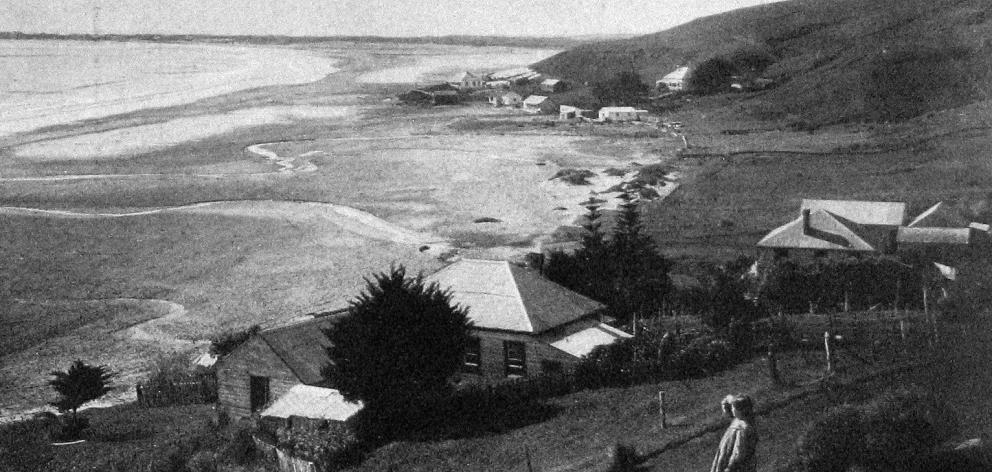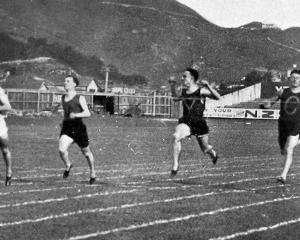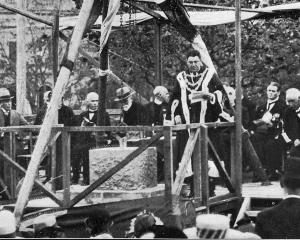
The trouble seems to have started with an increase in the price of beer — a development that has stirred to a mad fury the good Labourites all over the commonwealth. The hotels in the Territory are State-owned. Recently, the Administrator (Dr Gilruth) raised the retail price of beer to cover the new tax. Thereupon Darwin went mad. The biggest body of workers there comprise the employees of Vestey Brothers’ new meat works. They held a meeting, and decided that their many grievances were more than they could bear. A procession of 400 excited men started in procession for the Administrator’s residence. There were 700 by the time they arrived. A deputation went in to interview the Administrator. Two members came out and announced that ‘‘he was the same Dr Gilruth as we have known for the past five years’’ — in other words, the big, dour Scotchman refused to be intimidated. The crowd howled its fury. At last the mob’s patience gave way, and they sent in a demand that Dr Gilruth come out and address them. He came out and told them frankly what he thought about their grievances, and said that their representations would be forwarded to the Minister, whose servant he was. The mob howled at him, rushed the fence and swarmed over it. They disarmed the constables, roughly handled the Administrator, wrecked some of the lattice windows and pulled down the end of the tennis court. Eventually, their leaders got them under control and out of the grounds. So far, Dr Gilruth remains in charge, and the Government has made no move.
Fire in acid works
An extensive fire broke out about 1 o’clock this morning in Kempthorne, Prosser, and Co.’s acid works at Burnside. It was not possible, at the hour stated, to obtain particulars of the outbreak, but a resident at Burnside informed us by telephone that the fire was evidently of a very serious nature. Many residents in the locality were awakened by a tremendous explosion. Owing to the inflammable nature of the contents of the works, the fire quickly obtained a strong hold, but an hour and a-half after the alarm was given the flames appeared to be subsiding. Four men from the City Brigade attended. The sulphuric acid works and plant are completely destroyed, but the other works have been saved. The damage is estimated at between £20,000 and £30,000.
Emigration for women
LONDON: With reference to the problems of reconstruction and of the position of women when industrial demobilisation causes a glut in the labour market, a correspondent draws the attention of the Westminster Gazette to the work which General Booth has already done towards meeting the difficulties. Recognising that migration was one of the chief avenues of escape from serious troubles, General Booth induced the authorities to give substantial support to a scheme he framed for the after-war emigration of women to the overseas dominions. The machinery for the carrying out of this plan, which should form a valuable contribution to the solution of the problem of the demobilisation of women, is ready to be set in motion as soon as the difficulties with regard to shipping have been overcome. — ODT 14.1.1919
• COPIES OF PICTURE AVAILABLE FROM ODT FRONT OFFICE, LOWER STUART ST, OR WWW.OTAGOIMAGES.CO.NZ












